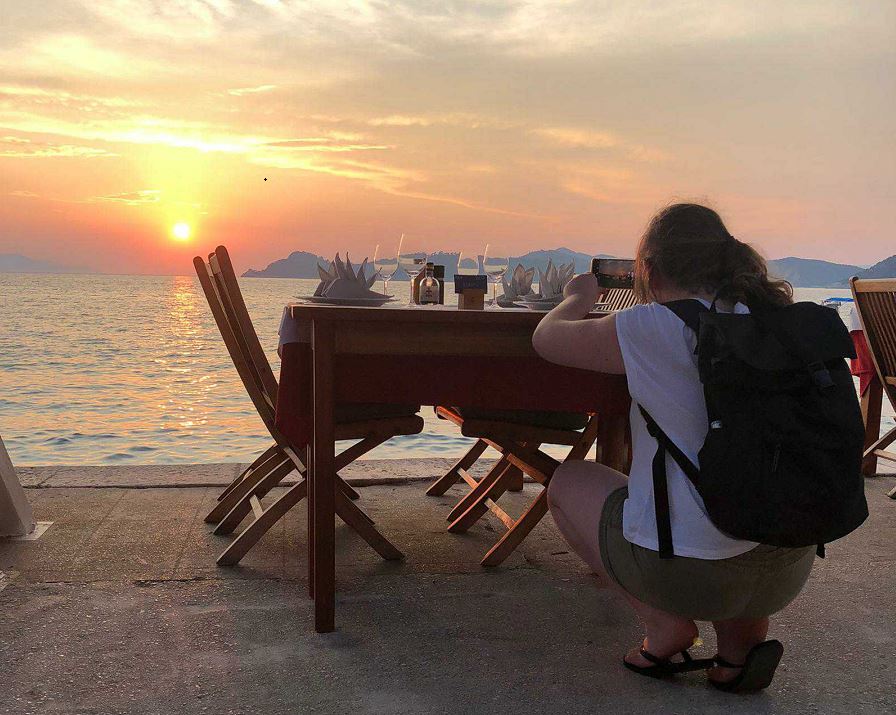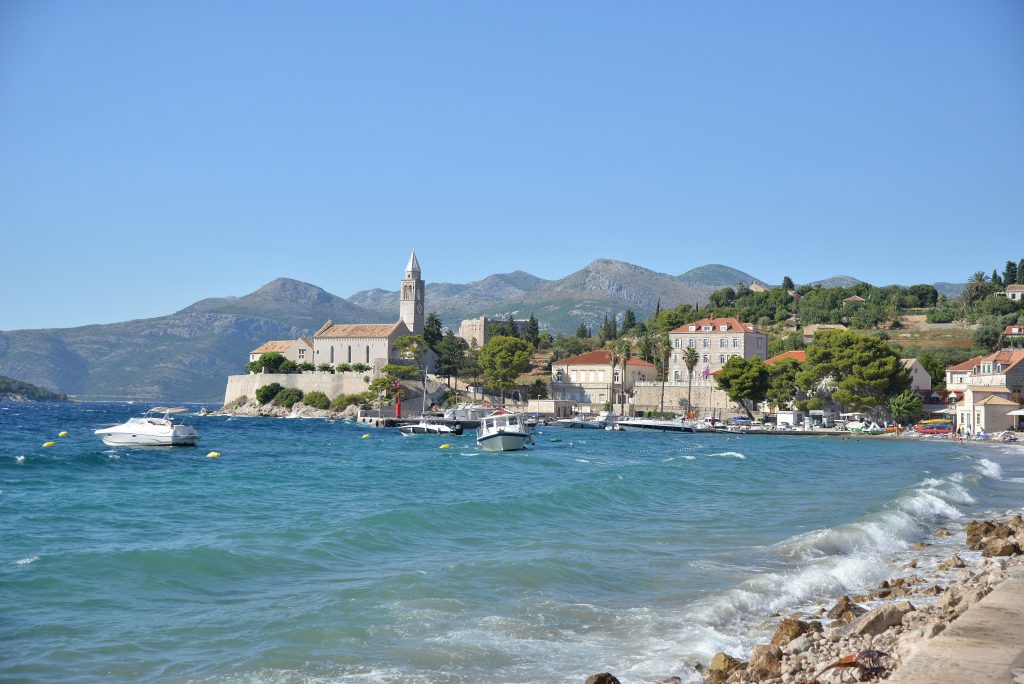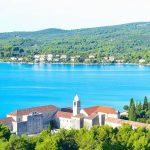April the 7th, 2024 – The island of Lopud is a carless and timeless Dalmatian paradise just north of bustling Dubrovnik. It has it all. And then some.
Although I am fairly well travelled around Croatia, there are certain gaps in my knowledge and experience, one of the most gaping of which has been the fabled Elaphiti islands of Kolocep, Sipan and Lopud. That changed back in the summer of 2020. That summer also gave me new perspective of Dubrovnik as a tourist destination.
My first enchanting introduction was the nearest island to Dubrovnik – Kolocep (known locally as Kalamota), just 30 minutes by regular daily ferry from the Pearl of the Adriatic (you can read more in Arise Kalamota! Kolocep, 30 Mins from Dubrovnik But a World Away).
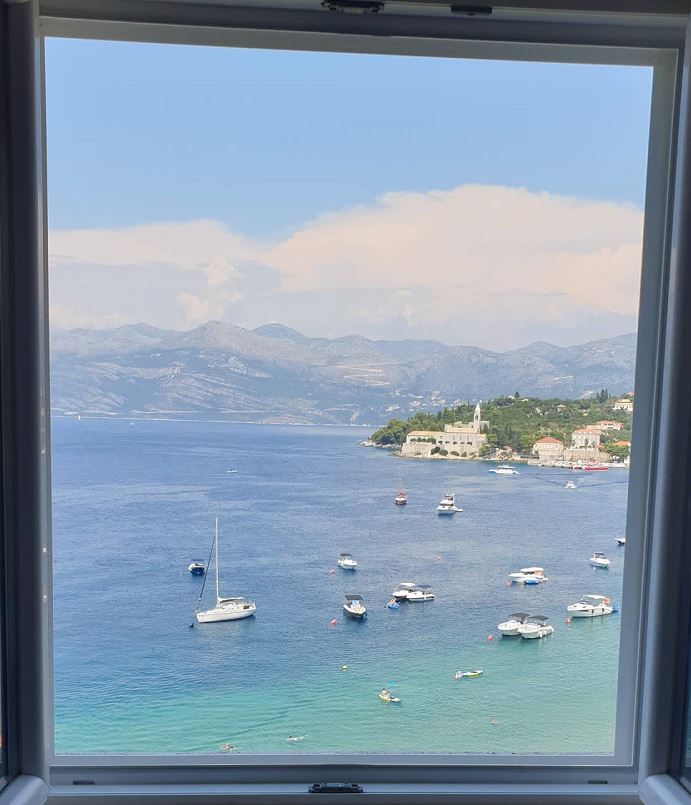
Next along the Jadrolinija route was Lopud, another island free of cars, and one which a good friend had been championing for years, as he spends a month there every August. When he showed me the bedroom view from one of the apartments he stays in, I could quite understand why. Not a lot wrong with waking up to that each morning…
Every island is different in Croatia, and if I was seduced by Kalamota, I was blown away by Lopud. It seemed to be an island with so much simplicity and yet so much depth, history, tradition and culture. And the more I looked into things, the more unusual things I found.
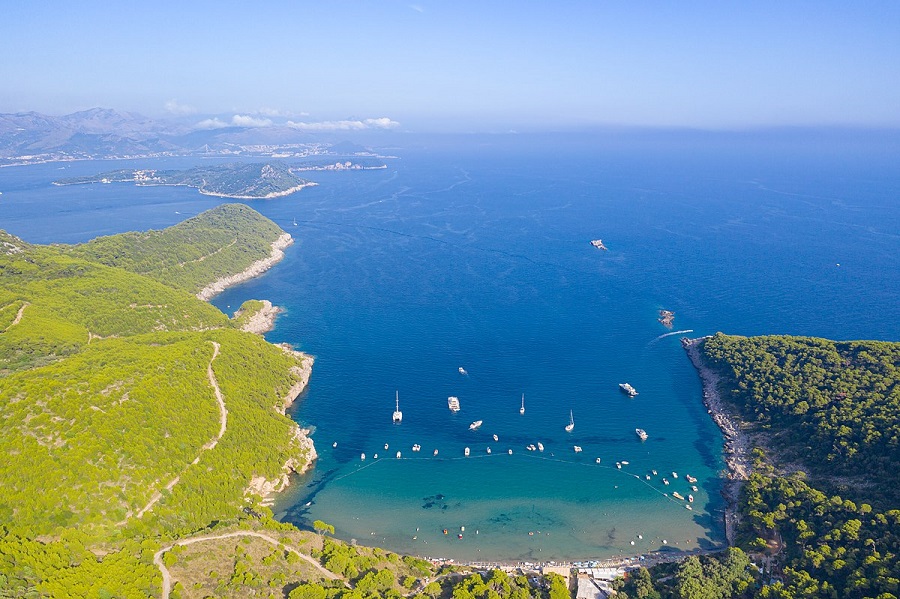
Lopud is essentially two parts. A hike through the trees to the other side from the ferry will reward you with one of the best sandy beaches in all Croatia at Sunj. If you are looking to truly get away from it on a beach day, it doesn’t get much better than this on a carless island.
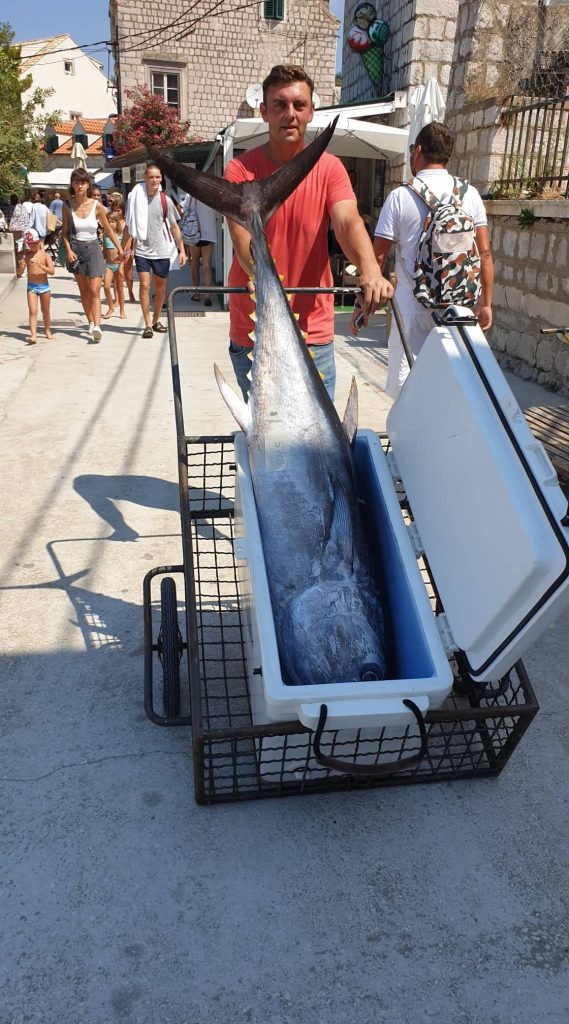
But the main action happens on the other side of the island, one gorgeous stone drag of Dalmatian life with not a car in sight. It is a hive of activity, with fish deliveries an improvisation on carless Lopud. A good lunch for someone.
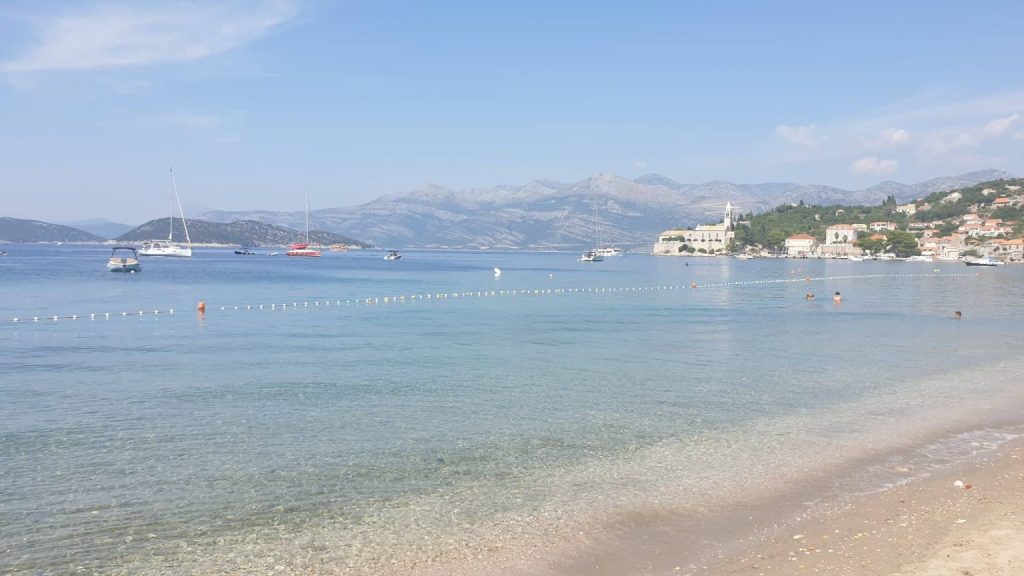
And beaches right in the centre of town, very family-friendly. The Lopud riva for me was a really interesting place. It had the feel of a lively Dalmatian town, while at the same time appearing a complete chill zone for tourists and locals alike. So many different types of people mixed into one, and intermingling. The locals of course, as well as those born here who return religiously each year (I met several of these, including a restaurateur in New York), plenty of people from Zagreb reconnecting with each other under relaxed and azure Dalmatian skies. And tourists of course who interacted freely with their friendly local hosts.
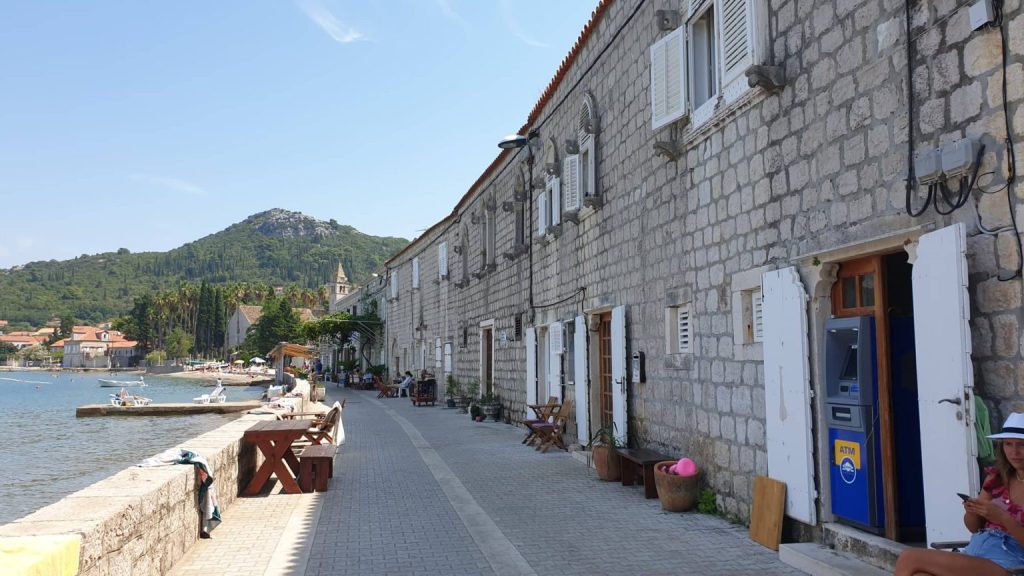
The riva was also the living room for those living and renting on the waterfront. Dining tables and each chairs put out in front of the houses. It added to the feeling of welcome and intimacy. this was a very friendly island.
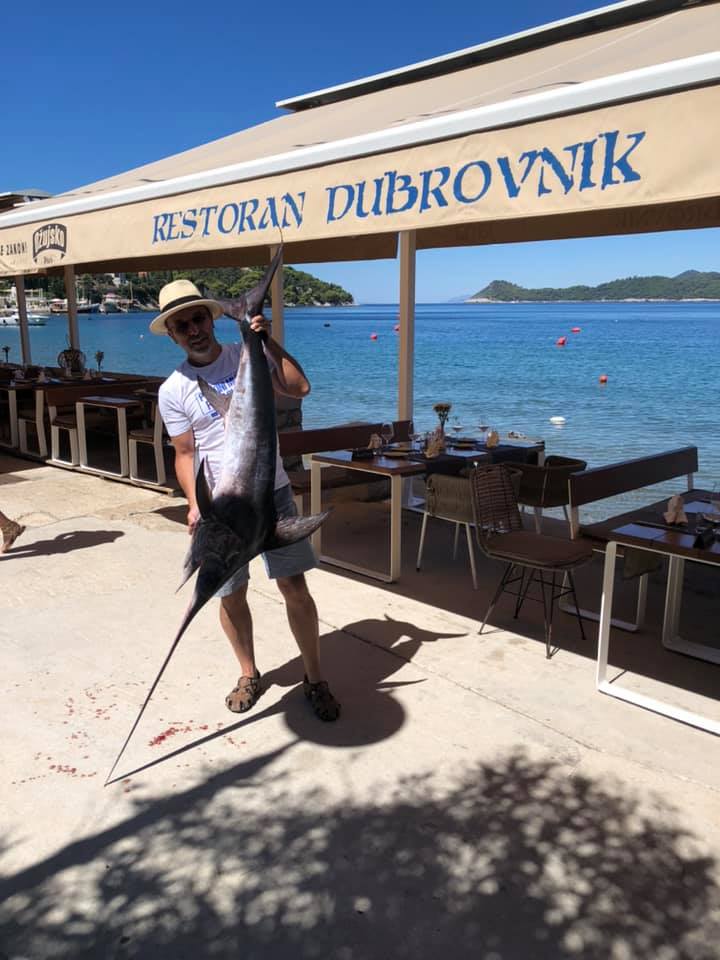
And one of great seafood, the freshest catch of the day.
Lopud also has some rather unusual claims to fame, including apparently the tallest palm trees in all Europe, as well as Europe’s first ever concrete hotel, built in 1936, which is scheduled for renovation soon. You can learn more on both in Secrets of Lopud: Europe’s Tallest Palm Trees Shade Europe’s Oldest Concrete Hotel.
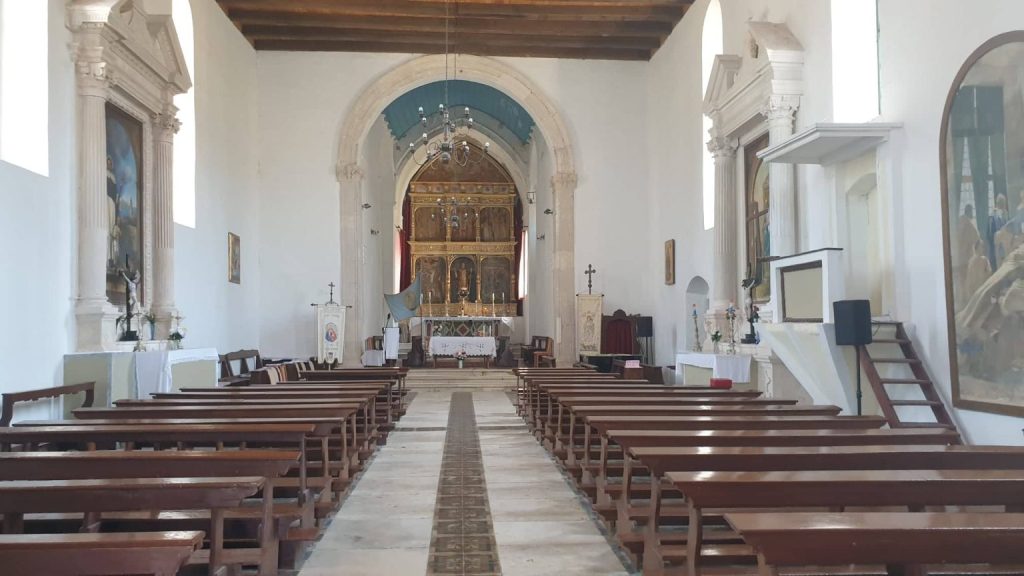
And next to the palm trees and the concrete hotel, just one of 30 impressive churches and two monasteries on Lopud which tell part of the tale of the island’s former wealth and glory days.
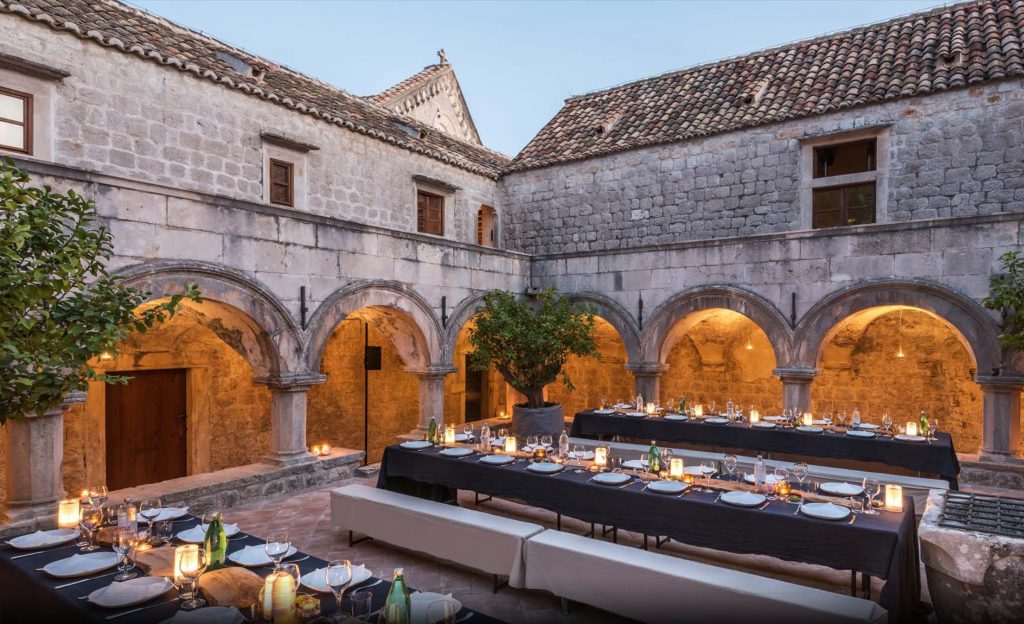
Glory days which are coming slowly back, perhaps, with one of those monasteries opening this summer as one of the top luxury 5-star hotels on the Adriatic. Check out the fabulous LOPUD-1483 converted island monastery.
For Lopud has quite a history, with human habitation dating back at least to the 7th century. Refugees fleeing from the Ottomans in the 15th century increased the population considerably until the 17th century when an incredible 14,000 people lived on the island. That compares to just 249 in the 2011 census.
Lopud was at the heart of the dominance of the Dubrovnik Republic’s seafaring success, and at its height, the island was home to about a quarter of the republic’s navy, with some of its most famous sailors being Lopud men.
At its height of the seafaring prominence of the Dubrovnik Republic, it was a place of immense culture, but disaster struck in 1667, with a devastating earthquake which badly damaged both Dubrovnik and Lopud, but while the Pearl of the Adriatic recovered, Lopud did not. The result for tourists today is a charming and lush island full of wondrous vegetation and historic buildings.
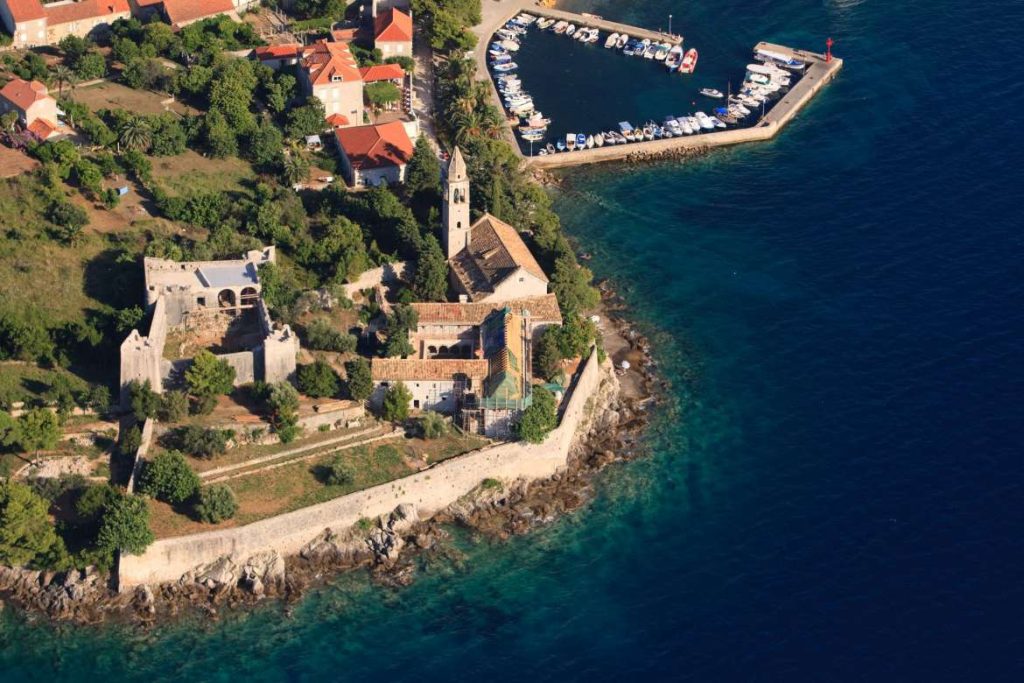
Lopud’s most famous son is undoubtedly Miho Pracat, the wealthy 16th-century merchant, who won made and lost (through shipwrecks) fortunes, and whose bust today can be found in the Rector’s Palace in Dubrovnik.
According to legend, having lost his fortune for the second time when he lost his fleet, Pracat decided to return to Lopud and live out his days in a modest manner. While sat alone feeling sorry for himself, he noticed a lizard trying to climb a wall. The lizard failed twice, falling both times. But on the third attempt, the lizard succeeded, prompting Pracat to swear an oath that he too would try again. As with the lizard, it was a question of third time lucky, and he went on to become not only immensely rich, but also a great benefactor and meritorious citizen of Dubrovnik.
Perhaps his most famous hour was a conversation with a grateful Charles V after his ships circumvented a blockade and delivered grain to the king’s troops. The king summoned the merchant during his morning shave to ask him what he wanted to show the king’s gratitude, to which the Dubrovnik merchant replied that he had no need for anything as he was wealthy enough, but he would take the king’s shaving serviette.
The serviette is on display in the Museum of Lopud to this day.
Enough of the history, as the sun is setting at the end of another perfect day. Time to enjoy one of the true highlights of this magical island – sunsets.
